 Categories: Newsletter
Categories: Newsletter Hey! I think you made a mistake last week. Did you?
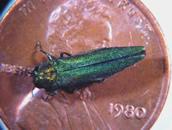

We sure did and we got caught! The insect at the left is the Emerald Ash Borer not the European Ash Bore as we miscalled it. The worse part is we were caught by two professional friends who we respect and like very much. The first is the owner/designer of Full Circle Landscaping in Falmouth and the second is the Maine State Horticulturist! It is nice to know someone is reading our publication and it is also nice to be caught by two such great people. Thanks for keeping us honest and we promise to be more observant in the future! (We left the "button" just in case you wanted to take a look!)
(Thanks to Maine Forestry Service for the great photo)
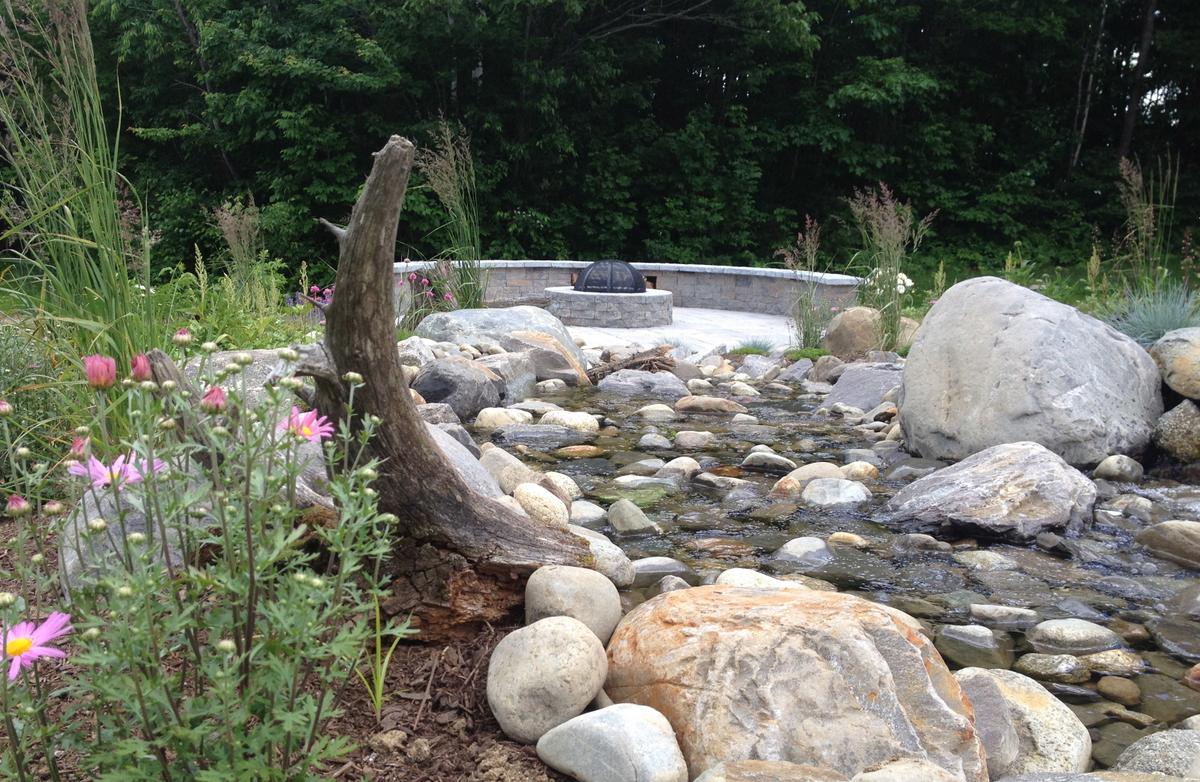
I heard you guys do water features too. Is that true?
Yes we do and what a transformation it can make to a backyard. The one above is at a very good customer's home in Augusta and was quite an undertaking with excavation, a designed rubberized bed, installed river stones, circulating pumps, and native wild flowers along the boundary. What a challenging and fun project! However, water features can be as simple as a self contained bubbling urn or a circulating bird bath and of course can be as involved as a 10 foot water fall into a coy pond. The wildlife activity and a continuous babbling brook is sure to enhance the ambiance of anyone's backyard.
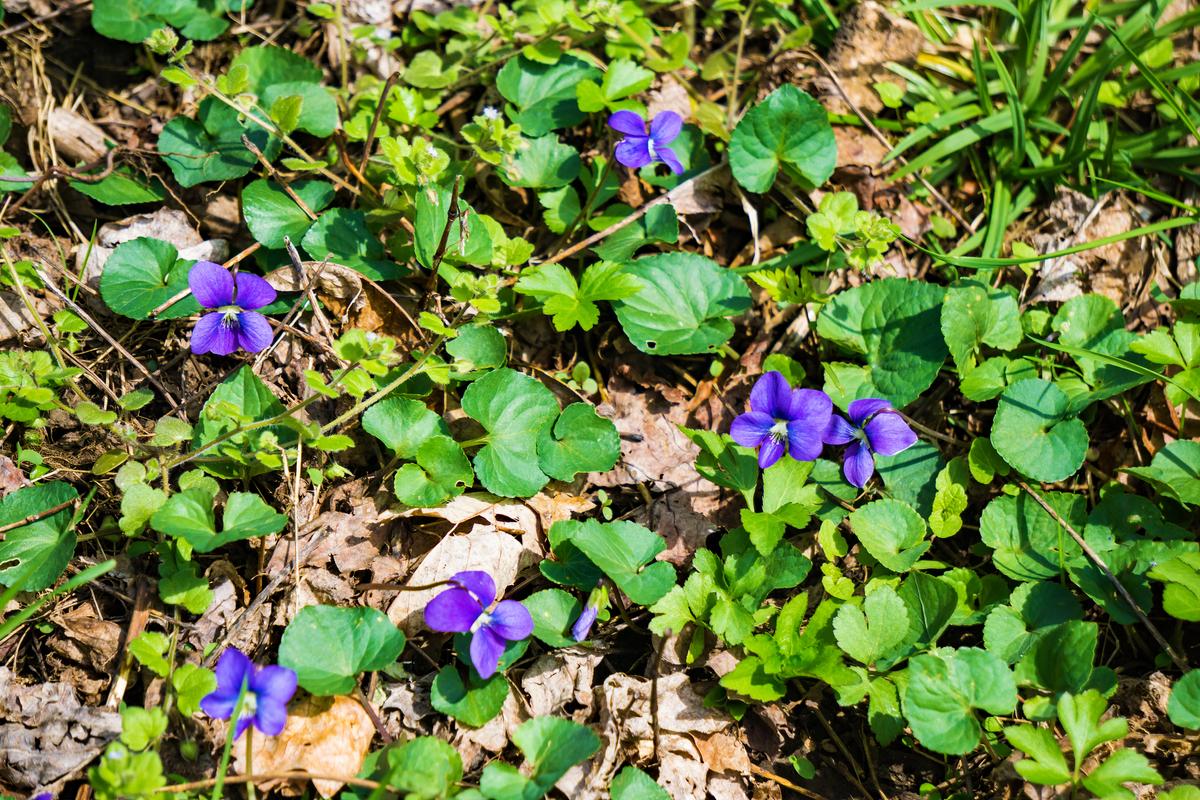
Can you kill these!??
My wife loves them in the woods but I hate them in the lawn!
How do I get rid of them?
I am sorry but you won't like this answer. These are wild violets and they are perennial broadleaf "flowers" or weeds depending on your point of view. They are already showing the first signs of spring in warm spots and they make someone's heart "sing" but not everyones. As lawn lovers know they have a tendency to invade lawns and are tough to get rid of especially during the summer. However, if you are patient they can be sprayed in the fall with an herbicide and after a couple of years and a couple of sprayings they will disappear. In the mean time you can enjoy them by picking the flowers and putting them in a salad, or making them into a tea which we are told is very soothing when drank hot or cold. For more information regarding the use of these and other "weeds" for food and/or drink go to:
Okay, I know they are coming but can you tell me when?
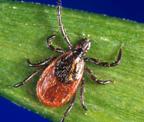

If you have lived in Maine for awhile you can identify our "friend" on the left as the Black Legged Tick or Deer Tick and you are aware it can cause Lyme and similarly unpleasant diseases such as Anaplasmosis, Babesiosis, Powassan, and others. But when do those ticks show up? The answer is that any time the temperature is above 32 degrees ticks may become active. The adults are typically most active in the months of late April and May and then again in late September, October, November and even December; look for nymphs to be most prevalent from early May through August; and larva from July through October. But depending on the climatic swings they can behave like unwanted company showing up when most unexpected and staying way too long! Lynch Landscaping offers a spray program that begins spraying in April and continues its three spray applications through October. This plan has been very effective controlling not only Deer Ticks but also Dog, Wood and Lone Star Ticks. It can be combined with a three spray mosquito program, that has also received very good reviews, to offer season long protection. Remember if you are out of a spray zone to apply insect and tick repellent and to keep covered up! The Maine Medical Center Research Institute provides excellent resources in regards to ticks (see the button below) as does the State of Maine website. Thanks to Bureau of Pesticide Control for the well known photo.
Thought of the Week
Remember this time last year? We were all scared and one of our more philosophical employees said "we will make it through much like the Hummingbird that is starting its trek from someplace in South America and heading towards some remote location in Maine". It won't be an easy haul and sadly we will lose some along the way but we will make it. As we sit here in 2021 with most of our older employees completely vaccinated, we feel lucky that, so far, we have all made it through and if we "stay the course" there is a light at the end of the tunnel. As we move towards that light and as the hummingbird comes to the end of its round trip trek we commit to you that in the next few months we will keep you, our customers, safe by following the guidelines that have been set out for us. Thank you for staying the course.
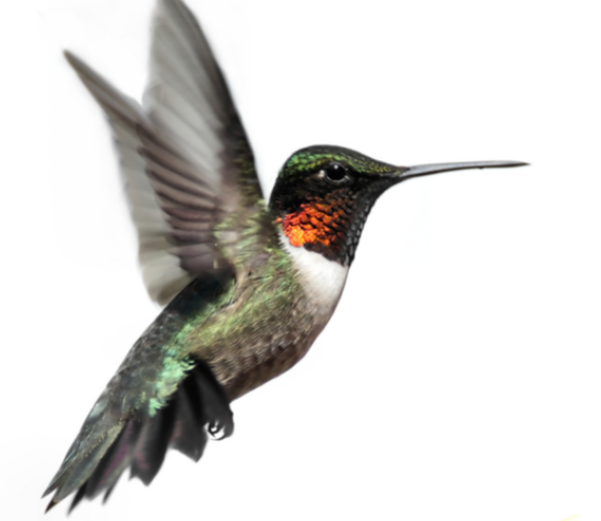
Thanks to all of those who have given so much over this past year!
